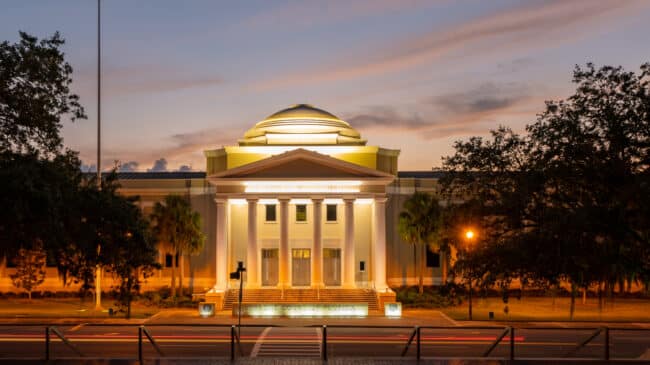Florida voters may or may not get to decide whether adults should enjoy the right to make their own decisions about marijuana use. A political action committee called Smart & Safe Florida has collected 1,013,325 valid signatures to qualify a measure for the ballot — substantially more than the 891,589 required. However, the Florida Supreme Court must certify an initiative’s validity before it can appear on the ballot.
Attorney General Ashley Mood and anti-marijuana groups have filed briefs arguing the court should reject the measure. Moody is joined in opposition by the Florida Chamber of Commerce and the Drug Free America Foundation. But these briefs present several spurious arguments.
First, Moody (along with the Drug Free America Foundation) claims that the summary is misleading because it states adults 21 years or older could purchase, possess, or use marijuana. Moody argues that the claim is misleading because those actions would remain illegal under federal law.
In reality, the initiative is a proposed amendment to the Florida constitution and has no direct relationship to federal statutory law but would instead govern Florida statutes. More than a dozen states have legalized marijuana by initiatives containing similar language. Florida’s high court should not adjudicate the validity of a state constitutional provision based on an appeal to federal statute. Moreover, the summary expressly states it “does not change, or immunize violations of federal law.” Nobody is being misled.
Second, Moody argues the initiative would permit unregulated sales because the initiative doesn’t specifically grant the state health department regulatory authority over recreational marijuana sales. In truth, the initiative does state that only existing medical marijuana treatment centers (MMTCs) would be able to engage in recreational sales, along with other entities to whom the department may grant licenses in the future. The health department regulates all MMTCs, so this claim is not accurate.
Third, the attorney general argues the initiative might mislead voters into believing there will be more competition in Florida’s marijuana market. The initiative is clear that it restricts any commercial marijuana activity to medical marijuana treatment centers but would allow the legislature to authorize additional adult-use licenses in the future. It’s difficult to see how this is misleading, but it does highlight the self-serving nature of the initiative.
The initiative is entirely financed by Trulieve Cannabis, one of the largest publicly traded cannabis companies in the world by market capitalization. Trulieve has contributed all of the $40 million that has been received by Smart & Safe Florida, and the company controls 125 of the 571 medical marijuana dispensaries currently operating in Florida. The initiative would restrict any new entrants from coming into the marijuana market unless the state legislature passes a law allowing for the award of new commercial licenses. Based on history, Florida lawmakers appear unlikely to do this, so existing licensees are unlikely to face substantial competition from new entrants to the market.
Florida politicians have consistently slow-walked implementation of a medical marijuana law that was approved by voters in 2016. Following the adoption of that initiative, Florida lawmakers first declined to consider implementing the statutes the initiative required them to adopt until then-Gov. Rick Scott called them into a special session to complete their constitutional responsibilities. They then adopted a statute that banned smokable products—a move that state courts later ruled violated the intent of the initiative.
Gov. Ron DeSantis’ administration later fell years behind in awarding licenses to operate legal marijuana businesses, drawing further admonishment in state courts. Most recently, the DeSantis administration raised the fee for these licenses more than 20 times, from $60,000 to $1.33 million.
Attorney General Moody is reportedly acting at the direction of Gov. DeSantis in trying to get the initiative kicked off the ballot. This move appears to be a continuation of years of efforts by Florida conservatives to circumvent the voters’ will by limiting the legalization of marijuana.
But the arguments presented by Moody and allies shouldn’t pass legal muster. Voters should be able to freely decide on the initiative based on its merits, giving due consideration to its potentially anti-competitive nature.


